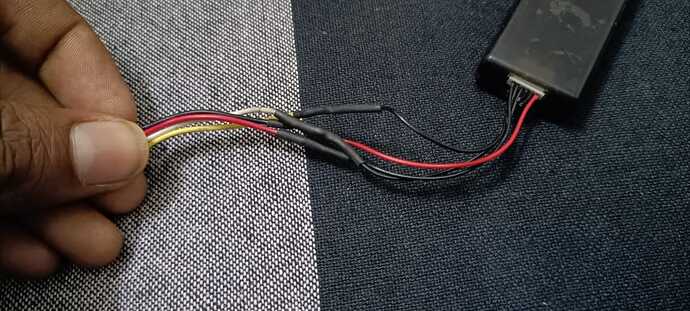hi, Jimit here, I want to send flight data through telemetry via Serial connection, but when I receive on telemetry my pc, I got weird data, that data I show is not in a proper format. I don't know how to deal with it.please help me
#include <Wire.h>
#include <Arduino.h>
#include <IMUs/IMU.h>
uint32_t LOOP_TIMER, now, then;
IMU imu = IMU();
float x;
float y;
float z;
void setup()
{
imu.begin();
imu.setConfig();
Serial4.begin(57600);
delay(10);
LOOP_TIMER = micros();
}
void loop()
{
// put your main code here, to run repeatedly:
now = millis();
if (now - then >= 10)
{
imu.getBMI088AccData();
// Data in [rad/s]
Serial4.print(imu.mAccBmi088Data(0), 6);
Serial4.print(",");
Serial4.print(imu.mAccBmi088Data(1), 6);
Serial4.print(",");
Serial4.println(imu.mAccBmi088Data(2), 6);
Serial4.flush();
then = now;
}
}
0,-0.033700,91,-0.035897,0.994139
0.038095,-0.032234,0.998535
0.038095,-0.035165,1.005128
0.036630,-0.038095,0.998535
0.038828,-0.033700,1.000733
0.037363,-0.035897,0.997070
0.036630,-0.032234,0.994872
0.041026,-0.036630,0.998535
0.037363,-0.034432,1.000000
0.037363,-0.033700,0.996337
0.035897,-0.034432,0.95,-0.031502,1.000733
0.036630,-0.040293,0.993407
0.038828,-0.036630,0.998535
0.039560,-0.042491,535
0.036630,-0.037363,0.998535
0.041758,-0.031502,0.998535
0.035165,-0.031502,0.998535
0.039560,-0.030769,1.001465
0.037363,-0.034432,0.999267
0.035897,-0.028571,0.997070
0.041758,-0.032234,0.997802
0.038828,-0.032960.038828,-0.038095,0.996337
0.038828,-0.037363,1.002930
0.043223,-0.037363,0.999267
0.037363,-0.033700,0.997070
0.040293,-0.037363,0.998535
0.037363,-0.032967,0.997802
0.043223,-0.033700,0.997070
0.033700,-0.030037,0.999267
0.040293,-0.032967,0.995604
0.036630,-0.036630,0.9992658,-0.036630,1.000000
0.038828,-0.038828,0.996337
0.039560,-0.035897,0.999267
0.036630,-0.034432535
0.038095,-0.033700,1.000000
0.042491,-0.032234,0.999267
0.034432,-0.027839,1.000733
0.038828,-0.037363,0.997070
0.041026,-0.032967,0.998535
0.040293,-0.037363,0.999267
0.038828,-0.036630,0.994139
0.035897,-0.0337093,-0.034432,1.000733


